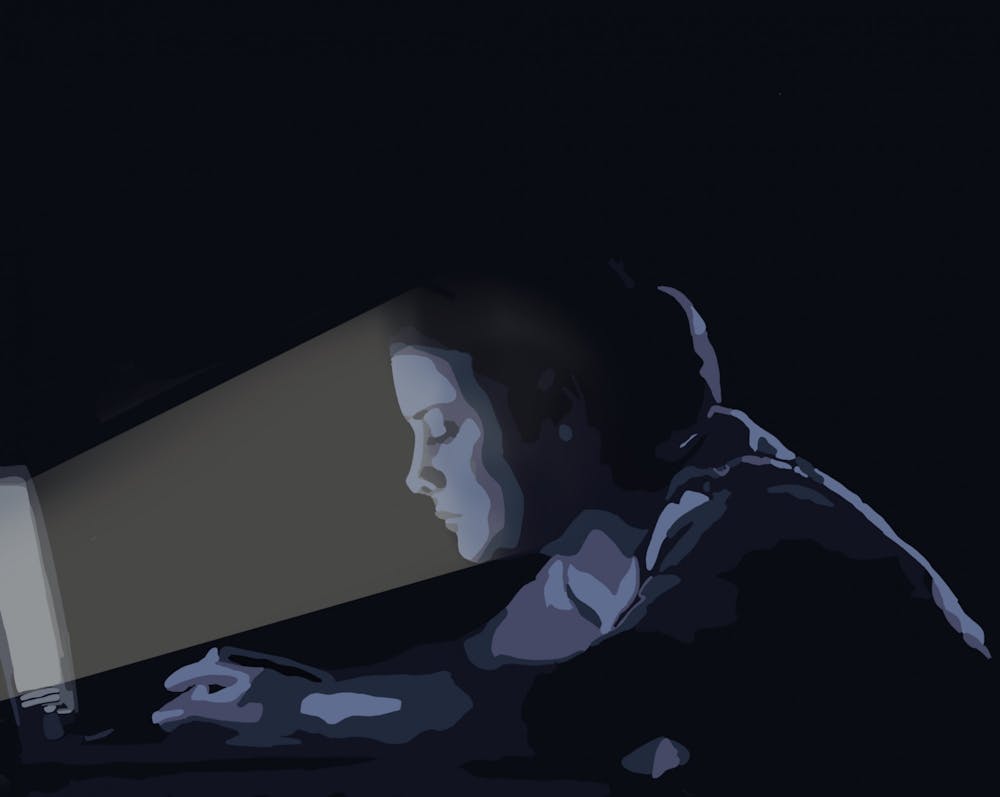At the start of this new semester, I am already feeling the effects of having the transition from my teens to twenties interrupted by a pandemic. Beyond that, I am still working on healing from the boom in media exposure of the traumatic racial violence in the summer of 2020. The effect George Floyd’s murder had on this country continues to take a toll on my mental health and the mental health of other Americans as well. These are tumultuous times, and the struggle persists.
To go back to the beginning would be to look at how students went home for spring break in 2020 and did not return to Grounds until the fall. It would be even longer for some students — such as myself, who did not return until spring 2021. As of January, there have been over 70 million COVID-19 cases and over 860,000 COVID-19 deaths in the U.S. Millions of parents, siblings, spouses and children have mourned the lives of those lost, and many were not able to hold proper funerals or have their bedside goodbyes. Being stuck inside has had a tremendous toll on the mental health of students everywhere. I dealt with social anxiety for months after coming back to Grounds last spring.
Because we all — with the exception of essential workers — were at home completing work and school tasks during lockdown, there was an increase in the attention we all gave to what everyone else in the country was up to. In the middle of learning to bake bread and perfectly whip coffee on TikTok, there were other videos swirling around as well. When the police killed an innocent Black man, George Floyd, on May 25, 2020, his face and voice were plastered on every television, phone and computer screen in the U.S. Not only was George Floyd’s murder given nationwide coverage, but the killings of other Black Americans began to gain more media exposure as well.
Watching Black people die day after day was traumatizing. Having to see another story on the news or on my Instagram feed every single day was traumatizing. Feeling the pressure to constantly speak up and stay educated was traumatizing. Don’t get me wrong — it is immeasurably important to stay educated on issues of racial equity, but watching without breaks for months on end made me feel like I was in a warzone 24/7. I have always known what kinds of danger being Black in America means I have to face, as well as the unfair treatment I and other people of color will inevitably face because of the color of our skin. However, having it thrown in my face repeatedly for months on end changed me and the way I viewed the people around me — perhaps for the worse. Knowing the role inherent racism has in the way people interact combined with the heightened racial tension in the country led to a mindset of consistent anger. The anger was warranted, but unhealthy nonetheless.
The rise in civil unrest after that summer paired with the unrest of a global pandemic had innumerable effects on the lives of students. In the spring of 2020, students were forced to pivot to entirely online classes to finish out the semester. But going online was not the only trouble that some students ran into. Practically overnight, many college students were displaced, having to vacate their dorm rooms and apartments. For some, this meant having nowhere else to go. The stress and strain of this past year did not only include having to adjust to online learning — but it also meant becoming homeless and foodless for some students across the country.
Two years of hearing about person after person contracting a potentially deadly virus and being unable to do or say anything has been traumatizing. And watching many Americans continuously decide that now was the time to feel oppressed when asked to care about public safety and wellbeing has been exhausting. I am fully vaccinated, have my booster shot, wear my mask and still flinch when I hear someone cough. Students at the University have had their prime years taken away from them. And COVID-19 is not over yet — although some people have decided to act as though it is. Be lenient with students. We have lost loved ones and are continuing to lose out on what should be some of the most important years of our lives.
Aliyah D. White is an Opinion Columnist for The Cavalier Daily. She can be reached at opinion@cavalierdaily.com.
The opinions expressed in this column are not necessarily those of The Cavalier Daily. Columns represent the views of the authors alone.







